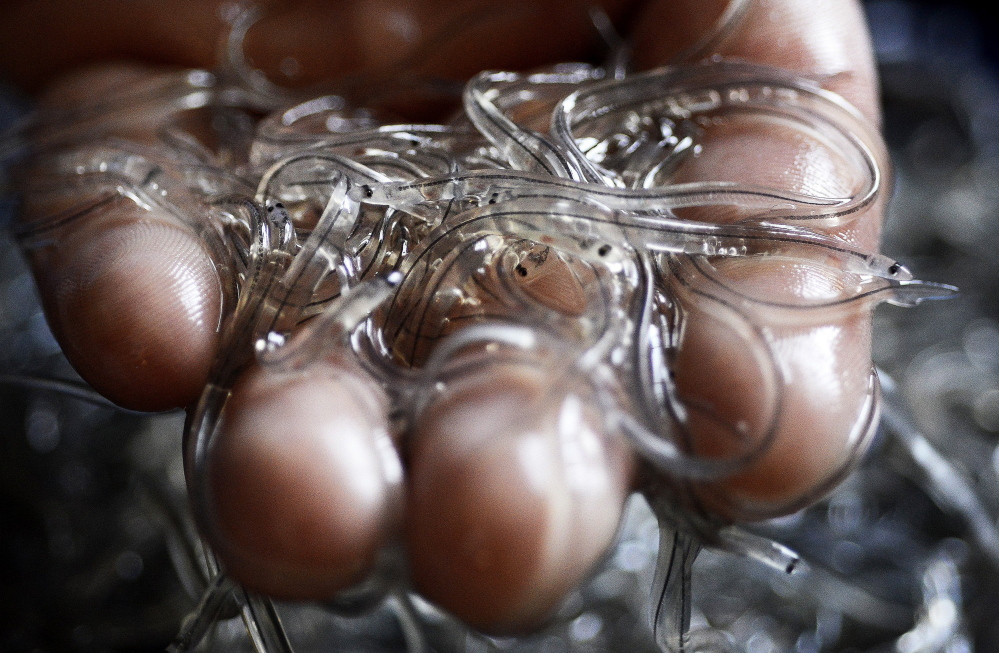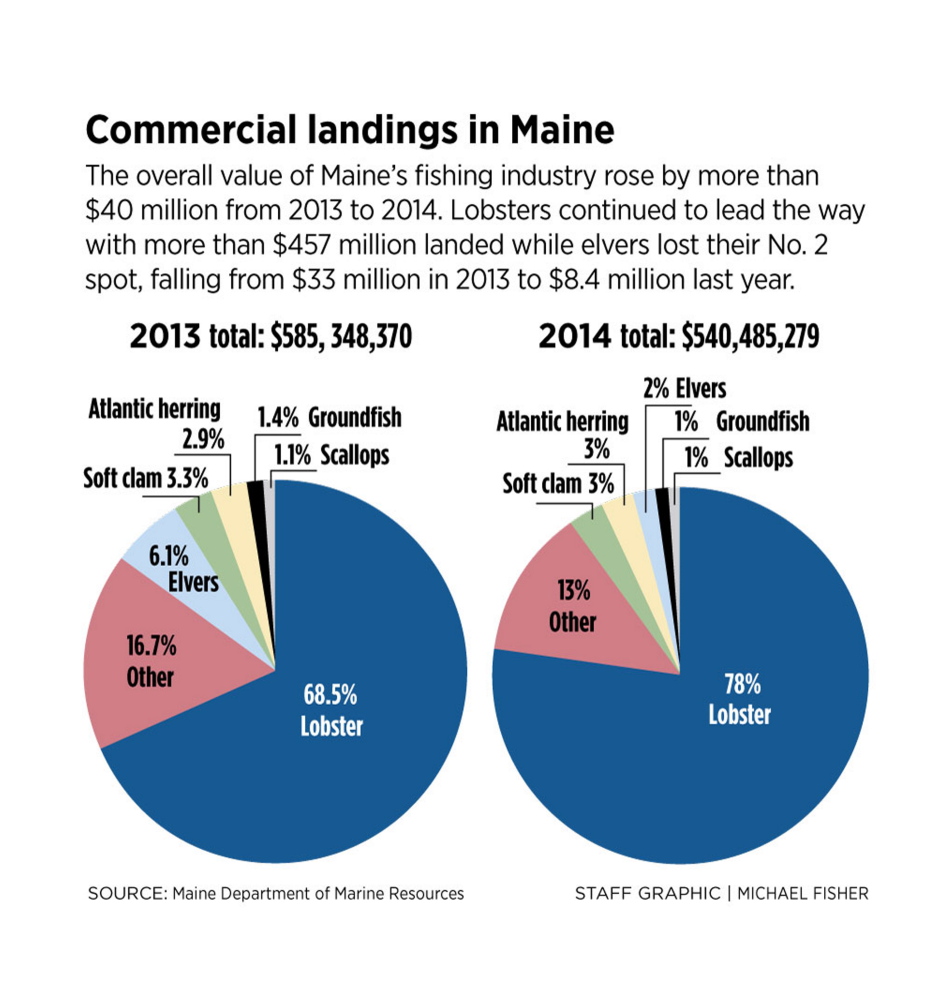Elvers, those baby eels that commanded as much as $1,800 per pound in 2012 and 2013, have fallen sharply in the ranks of Maine’s most lucrative fisheries.
Second to only lobster in 2013, with $33 million in total landings, elvers fell to the fourth spot in 2014, with a harvest worth just over $8.4 million, according to preliminary 2014 figures, released Thursday.
Maine fishermen caught seafood with a total value of $585 million last year, a record for the state. Lobster landings accounted for $456 million – more than three-quarters of the total value. Softshell clams and herring pushed elvers down to the fourth spot.
Last year’s elver harvest reflected a decline of nearly 75 percent from the harvest of 2013, and an even greater drop from the $40.3 million recorded in 2012. Regulators significantly cut the quota on the elver harvest in 2014, then adopted even more stringent quotas through the 2017 fishing season. The 2014 volume of 9,690 pounds was roughly half the 18,000 pounds caught in 2013.
Also, the per-pound value of elvers declined by about $1,000. Prices for elvers topped out around $1,800 per pound in 2012 and 2013, and fishermen reported prices between $500 and $1,000 per pound in 2014.
Overall, Maine’s commercial fishery performed well last year, with an increase of $44 million in value from 2013 to 2014.
Lobstermen enjoyed an especially lucrative year, with growing international demand propelling the record haul. For the third straight year and only the third time ever, they harvested more than 120 million pounds. Although the volume was down slightly from the 127.7 million pounds of 2013, the value rose from $370.3 million to $456.9 million – a 23.4 percent increase.
A resurgent scallop fishery also helped fuel the record year for fishermen. The value of the scallop harvest jumped to $7.5 million, from $5.7 million in 2013, state officials said.
The only species with no landings or value was Maine shrimp. The shrimp season was canceled because of a population collapse attributed to warming waters and overfishing.
Send questions/comments to the editors.




Comments are no longer available on this story